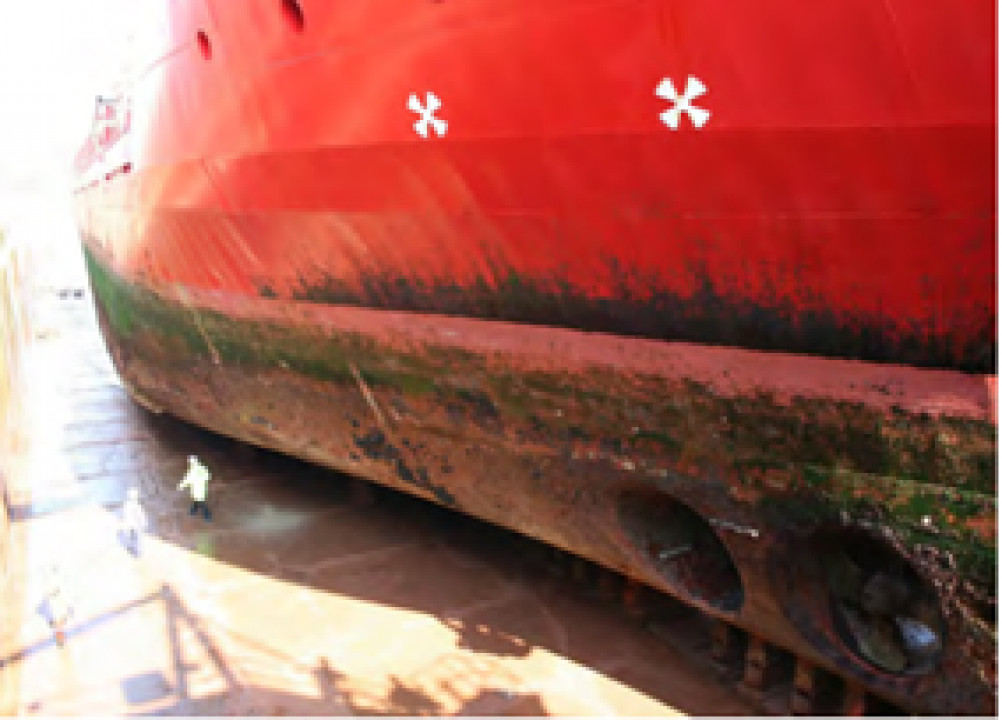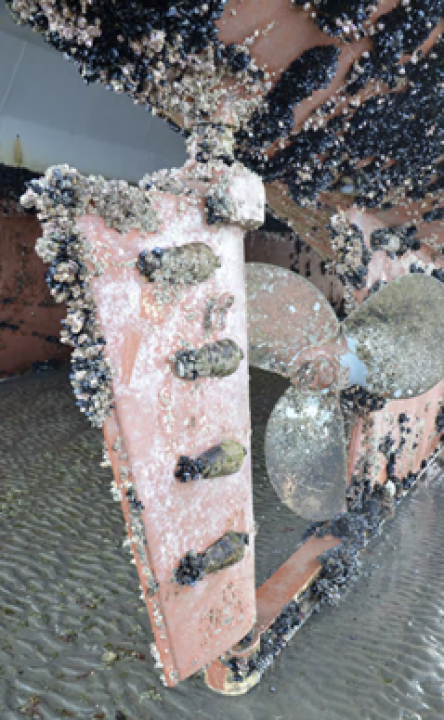Lead agency: Intergovernmental Oceanographic Commission (IOC-UNESCO).
Supporting agencies: International Maritime Organisation (IMO) and UN Development Programme (UNDP).
Overview
The overall aim of Working Group 44 is to build a broader understanding of the introduction and spread of non-indigenous species (NIS) via biofouling across all maritime industries. The introduction of NIS to new environments has been identified as a major threat to the world’s oceans and to the conservation of global biodiversity. Biofouling, or the colonization and growth of marine organisms on submerged surfaces, associated with various marine industries, has been identified as a primary vector for the transfer of NIS. To date, WG 44 has published an initial review and synthesis report entitled “Marine Biofouling: Non-Indigenous Species and Management Across Sectors”.
WG 44 continues to identify areas of common scientific interest, monitor trends, provide scientific advice, and facilitate the coordination of UN agency activities aiming to prevent the transfer of invasive species through marine biofouling.
Background
The transfer of invasive aquatic species to new environments, particularly by ships, is a major threat to the health of the world’s oceans and to the conservation of biodiversity.
Biofouling refers to the undesirable organisms that grow to cover the submerged surfaces of ships or other man-made structures (e.g., nets, equipment, infrastructure, marine litter). Almost immediately after a new structure is submerged in the ocean for the first time, a variety of bacteria and micro-algae will colonise its underwater surfaces, creating a biofilm (or “slime layer”). This is known as microfouling. Then larger organisms like mussels, barnacles and macro-algae will attach to the biofilm, covering the submerged surface of the structure. This is known as macrofouling.
Marine biofouling is a concern for several reasons, but particularly for its role in the transfer of non-indigenous species (NIS) to new environments. Invasive NIS can affect the survival of local species, population dynamics, ecosystem structure and functioning, as well as introducing new diseases. Invasive NIS also have environmental, socio-economic and human health impacts.
Efforts to eradicate invasive NIS have a very low success rate and often result in reinvasion. Therefore, effective measures to prevent biofouling NIS are urgently needed. WG 44 was created to build a broader understanding of the spread of aquatic invasive species via biofouling across all maritime industries in order to inform decision making on this topic.
History and work of WG 44
WG 44 was created in 2020 in response to the needs of the GloFouling Partnerships project, a global initiative by the Global Environment Facility (GEF), United Nations Development Programme (UNDP) and the International Maritime Organization (IMO). GloFouling aims to provide a globally consistent approach on how biofouling should be controlled in order to minimise the risk of NIS spread via ships. Therefore, WG 44 was created to provide a scientific review of biofouling impacts as well as existing management practices.
Since 2020, WG 44 has held several virtual meetings and one in-person meeting in Copenhagen, Denmark, in February 2023.
Their work to date has focused on:
· GESAMP (IMO/FAO/UNESCO-IOC/UNIDO/WMO/IAEA/UN/UNEP/ISA/UNDP Joint Group of Experts on the Scientific Aspects of Marine Environmental Protection), 2024 Marine Biofouling: Non-Indigenous Species and Management Across Sectors. Rep. Stud. GESAMP No. 114, 147 p.
· · www.gesamp.org/publications
The results of the above work have been recently published in October 2024 in GESAMP’s Reports and Studies series.
Current and future work of WG 44
WG 44 has just published their first report (mentioned above) and is already looking to its next phase of work. A new terms of reference is being developed with interested sponsoring organizations.
Current members of WG 44
Chair: Mario Tamburri (United States).
Joop Coolen (the Netherlands), Andrew Want (United Kingdom, Pedro Almeida Vinagre (Portugal), Serena Teo (Singapore), Youna Lyons (Singapore), Nina Blocher (Norway), Kamal Ranatunga (Sri Lanka), Agnese Marchini (Italy), Koebra Peters (South Africa), David Smith (United Kingdom), Marnie Campbell (Australia), Pei-Yuan Qian (China), Evangelina Schwindt (Argentina), Hiroshi Kawai (Japan), Jung-Hoon Kang (Republic of Korea).
Page last updated 15/05/2025

